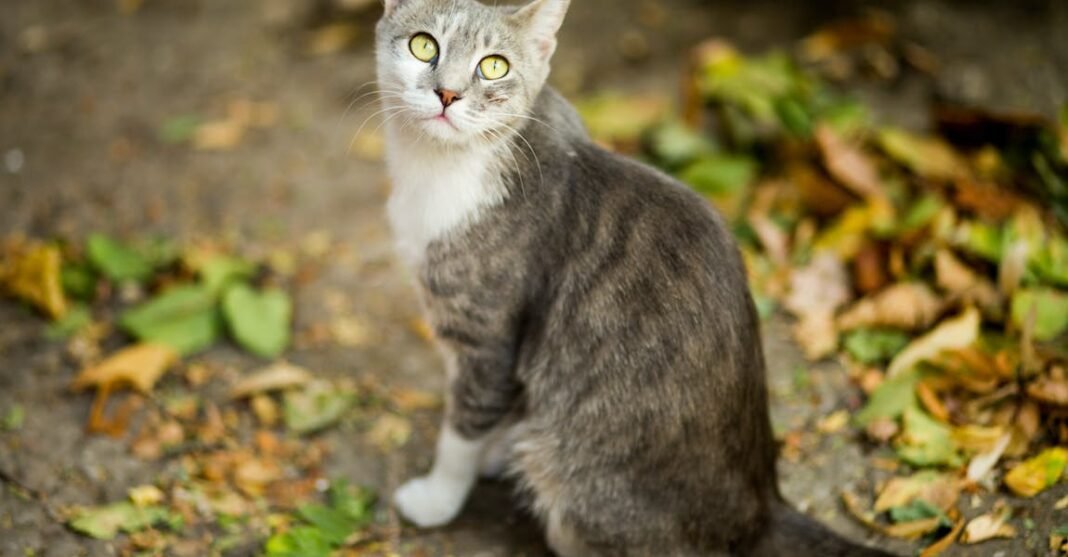A little furry ball of fluff came into your life, so what are you going to do with it? A cat is a wonderful companion for anyone, but you’ve got to know how to handle one. They aren’t dogs, after all! Here are some great tips for dealing with felines.
Check your cat for ticks and fleas every week. If your cat does have fleas, there is a good chance that you also have fleas in your home. You might need some flea bombs or premise-control sprays, along with treating the cat, to get rid of the issue. If you don’t know what products to use for controlling ticks and fleas, talk to your vet for some safe options.
Avoid eye contact to make friends with a cat. Ever wonder why cats seem drawn to the person who likes cats the least? The answer lies in cat body language. To cats, staring is “rude” and can be considered a challenge. Looking away shows that you respect their space and are not going to be a threat. So next time you are looking to meet a new feline friend, look away and let them approach you.
Keep your cat’s coat healthy by giving them a supplement of nutritional yeast. Nutritional yeast is an inexpensive supplement that can be found in most health food stores. Simply sprinkle a little bit on your cat’s dry food, or mix it in with their wet food. Not only do they love how it tastes, but it’s full of protein and vitamins that will keep them looking their best!
Never have your cat declawed. Many people misunderstand declawing, thinking it is the simple removal of a cat’s nail. This is not true. In fact, the veterinarian must remove the top knuckle along with the claw during the procedure. This can result in arthritis pain later in life and many behavior problems, such as biting. There are many alternatives from scratching posts to glue-on claw caps that can protect your belongings from a cat’s claws without resorting to such a harsh surgical solution.
Cats and electrical cords don’t mix. If you notice your cat has a habit of chewing on electric cords, try to bundle them up and hide them out of the cat’s reach. If that’s not possible, spray a little bit of bitter apple onto the cords. Not only is bitter apple non-toxic, cats absolutely hate the taste.
Cats are hunters by nature. They love to chase mice and other small animals and insects. Buying little fuzzy mice filled with catnip and batting them around with your cat is a great idea. Your cat will feel as though they are really hunting prey. This will also help you to connect with your cat better.
Attend cat shows for tips about your cat. A cat show only costs a few dollars to attend. But when you attend one, you see vendors selling cat items, and show pet owners that give their cats the best of everything. You can get ideas for best brands to feed your cat, as well as ideas for grooming and caring for your cat.
Cats like to chase birds and catch them. This helps cats to build and deliver crucial hunting skills. But what if you have an indoor cat? You can find cat toys at the pet store that will help you simulate a bird flying around. Your cat will love it, and love you for it.
If your cat seems to want to avoid his food bowl, try getting a different kind of bowl. Plastic can sometimes turn a cat off if it isn’t cleaned constantly, and can hold on to certain scents. Try glass or a metal bowl for best results, so your cat will keep eating.
When training a cat, take the proper approach. Encouragement works better than anger. If you are trying to teach a kitten to use a litterbox, for instance, yelling will only frighten a small cat. When the cat starts to go outside the box, gently place them in the box so they learn.
Let your cat exercise their hunting instinct. Cats are natural born hunters; however, this does not mean you need to allow mice to invade your home. Hide treats and toys throughout your home, and your cat will have a blast hunting down their treats. You can also find feather and laser toys that your cat can chase and pounce on.
If you’re tempted to load up on litter to cut back on cleanings, think again. Some people believe that the more cat litter they use, the longer they can go between emptying the litter box. Actually, this is a waste of your litter! Many cats refuse to use a litter box with more than 2 inches of litter on the bottom. Some prefer to dig to the bottom of the box before doing their business.
Don’t ever let your declawed cat outdoors. The cat won’t be able to fight back if other animals attack it and that could get it hurt or killed. Indoor cats are the only ones that you should declaw. Make sure that only the front claws are removed. Don’t cut the back claws because they won’t scratch up your furniture or floors.
You schedule your doctor’s appointments on a regular basis and you should do the same with your new cat. Cats need regular checkups to make sure they haven’t caught any bugs or infections in the wild. Many cats actually deal with obesity as well and a vet will be able to point this out.
If your cat is spitting up hairballs frequently, and extra grooming does not help, these handy tips may help. Consider mixing cat food with a single teaspoon of pumpkin. You can also try a teaspoon of water used to pack tuna mixed with the pumpkin. There are also cat foods that contain an anti-hairball component, usually extra fiber, that may solve the problem.
Now that you’ve read this article, you have some ideas for how you can best take care of your cat. These unique creatures can enrich your life, but only when they’re happy. Your cat may never seem satisfied, but if you use the tips in this article, he may purr a few times!


